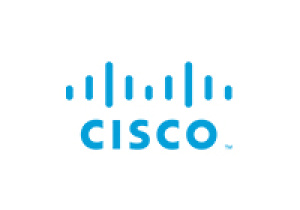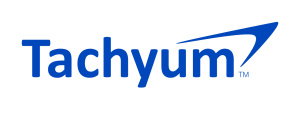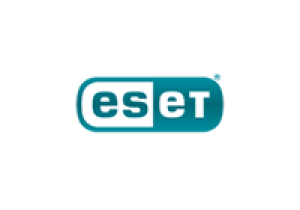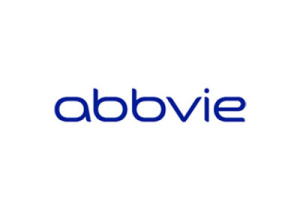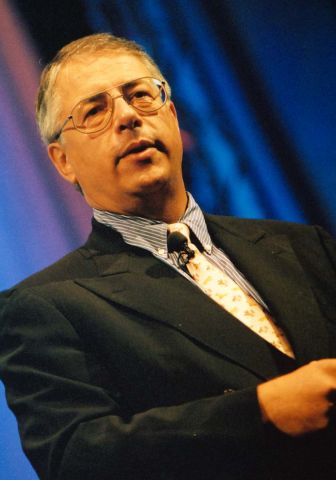
Hellmuth Broda
CTO EMEA---since 1998 serving as Chief Technologist for Europe, Middle East and Africa (EMEA) with Sun Microsystems Inc., Global Sales Operations. Working from Basle/Switzerland he establishes and furthers Technology Transfer to customer and partner executives as well as governments and other organizations in EMEA emphasizing the benefits and business implications of Sun technologies as facilitators for the transition from our product based to a services based economy. His focus is presently on Web Services today and tomorrow, Identity and Trust Management as a prerequisites for internet based services, the Liberty Allaince Project of today over 170 companies to build a federated network identity framework, and Java and Jini technologies which will allow to "build reliable systems from unreliable parts". He focuses on the three major Sun initiatives in reducing complexity: Sun ONE as the high level development and delivery platform, N1 the abstraction from the actual hardware in the data center, and secure mobility for service delivery for anybody, anytime, anywhere on any device.
Member, Sun Vision Council: Sun's Vision Council consists of 36 "visioneers" world wide. Its members are tasked to promote and develop Sun's Computing Vision as Key Note Speakers at conferences, industry seminars and trade shows. They deliver Sun's vision to the media in their respective geographical unit. H. Broda serves as coordinator for the visioneers in EMEA with the objective to develop visions tailored to the customers' needs and aspirations in these time zones. H. Broda frequently serves as an invited key note speaker at major events across EMEA.
Professional Development
1969--75 Studies in Chemistry and Biology in Freiburg/Germany. Master's degree (Staatsexamen).
1975--85 Ten years in scientific research (three years University Freiburg/Germany, received a doctoral degree in Biophysics; two years Scientific Assistant at the Max-Planck-Institut for Cell Biology (Heidelberg, Germany); three years Visiting Scholar at Harvard University (Cambridge, Massachussetts, USA) Biological Laboratories and "Tutor in Biology", two years assistant lecturer in Biophysics at the University of Konstanz/Germany.
1985--95 Ten years in application systems development (different management functions) in the Chemical and Pharmaceutical Industry. Responsibilities included: Analysis and Design for an agrochemical division database application, management of international preclinical research systems in a Pharma division, application delivery in Pharma R&D.
1995--98 Country Technology Manager and member of the Country Management Team with Sun Microsystems (Switzerland) responsible for the Swiss System Engineering and the Competence Center.
Professional Memberships
* Swiss Academy of Technical Sciences (Individual Member and member, Scientific Advisory Board)
* Elected member to the "European Academy of Sciences and Arts"
* Technical University Berlin: DAI-Lab (Advisory Board)
* Steering Committee, World Economic Forum/Digital Divide Initiative/Entrepreneurship
* Fraunhofer Gesellschaft (German Applied Engineering Research Institution with 53 institutes in Germany, US and Asia)
* Steering Committee, Global Forum 2002, 2003
* European Union IST Prize Executive Jury
* Europrix (EU's new media awards) Jury
* Curator at the Fraunhofer Institue for Integrated Circuits, Erlangen, Germany
* Curator at the Fraunhofer Institute for Factory Operations and Automatisation, Magdeburg, Germany
* German Informatics Society (GI)
* IEEE Computer Society
Member, Sun Vision Council: Sun's Vision Council consists of 36 "visioneers" world wide. Its members are tasked to promote and develop Sun's Computing Vision as Key Note Speakers at conferences, industry seminars and trade shows. They deliver Sun's vision to the media in their respective geographical unit. H. Broda serves as coordinator for the visioneers in EMEA with the objective to develop visions tailored to the customers' needs and aspirations in these time zones. H. Broda frequently serves as an invited key note speaker at major events across EMEA.
Professional Development
1969--75 Studies in Chemistry and Biology in Freiburg/Germany. Master's degree (Staatsexamen).
1975--85 Ten years in scientific research (three years University Freiburg/Germany, received a doctoral degree in Biophysics; two years Scientific Assistant at the Max-Planck-Institut for Cell Biology (Heidelberg, Germany); three years Visiting Scholar at Harvard University (Cambridge, Massachussetts, USA) Biological Laboratories and "Tutor in Biology", two years assistant lecturer in Biophysics at the University of Konstanz/Germany.
1985--95 Ten years in application systems development (different management functions) in the Chemical and Pharmaceutical Industry. Responsibilities included: Analysis and Design for an agrochemical division database application, management of international preclinical research systems in a Pharma division, application delivery in Pharma R&D.
1995--98 Country Technology Manager and member of the Country Management Team with Sun Microsystems (Switzerland) responsible for the Swiss System Engineering and the Competence Center.
Professional Memberships
* Swiss Academy of Technical Sciences (Individual Member and member, Scientific Advisory Board)
* Elected member to the "European Academy of Sciences and Arts"
* Technical University Berlin: DAI-Lab (Advisory Board)
* Steering Committee, World Economic Forum/Digital Divide Initiative/Entrepreneurship
* Fraunhofer Gesellschaft (German Applied Engineering Research Institution with 53 institutes in Germany, US and Asia)
* Steering Committee, Global Forum 2002, 2003
* European Union IST Prize Executive Jury
* Europrix (EU's new media awards) Jury
* Curator at the Fraunhofer Institue for Integrated Circuits, Erlangen, Germany
* Curator at the Fraunhofer Institute for Factory Operations and Automatisation, Magdeburg, Germany
* German Informatics Society (GI)
* IEEE Computer Society
Sign in to Autumn ITAPA 2024
-
Identity, Privacy and Trust Management for eGovernment | Kongres ITAPA 2003
Internet based commerce as well as network based public services are still slow in gaining momentum; customers hesitate to accept the new medium for transactions. Why is his so? Today's acceptance of web based services is hampered by the lack of consumers' trust into the system. They are not sure who is "on the other side" and who they are talking to and who does what with their data and personal information. Additionally, network identity nowadays exists for each user in numerous unrelated "information silos" that cannot interoperate, users have to remember hundreds of userIDs and passwords or pin codes. Objects and services need to be identified and must be enabled to recognize each other. An open federated approach for Network Identity and Trust Management that would also guarantee privacy and security of the consumer's information could help the public to gain trust into these systems and finally increase the acceptance for network delivered services. The Liberty Alliance (http://www.projectliberty.org), a large multi-industry business alliance has set out to create such interoperability specifications and standards. The goals and workings of the alliance will be presented as well as the advantages of a membership. Such an identity/authentication/authorization framework will create new business opportunities for several industries and enable trusted relationships between individuals and the private as well as the public sector. -
Liberty Alliance Project | Kongres ITAPA 2003


